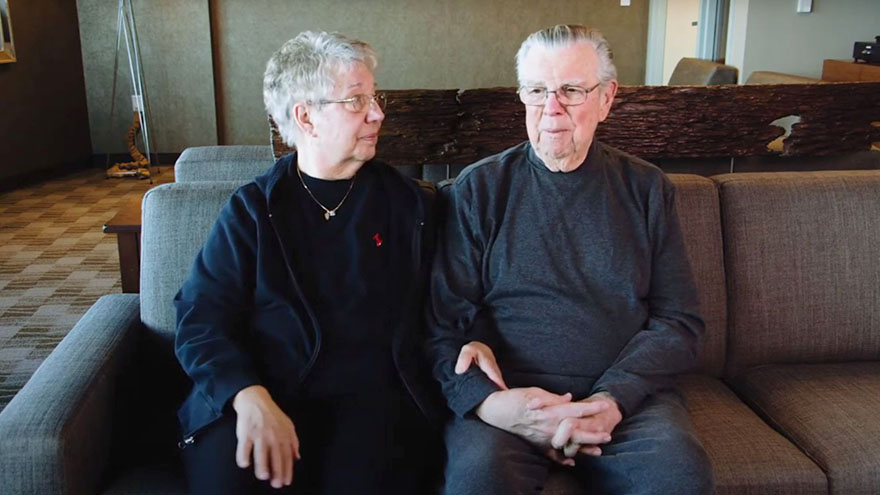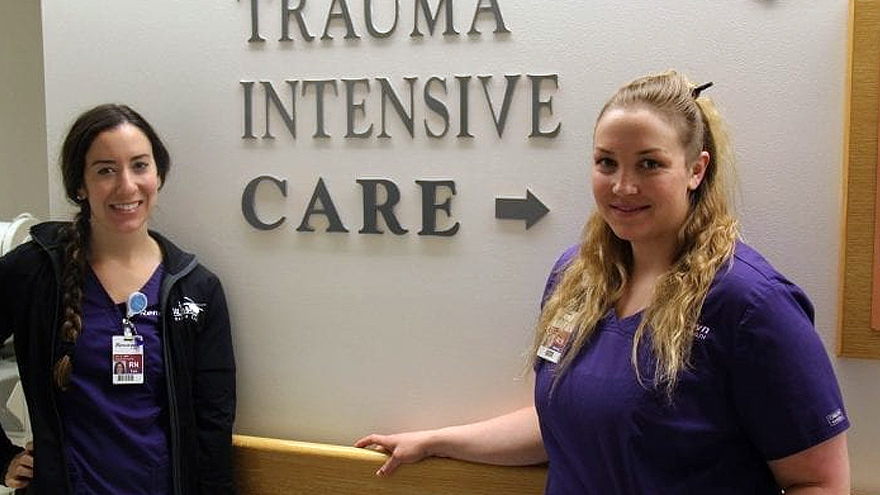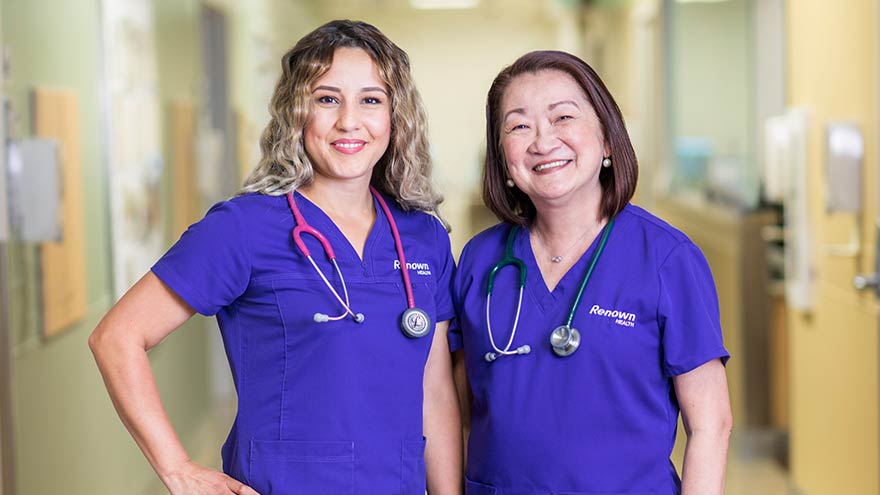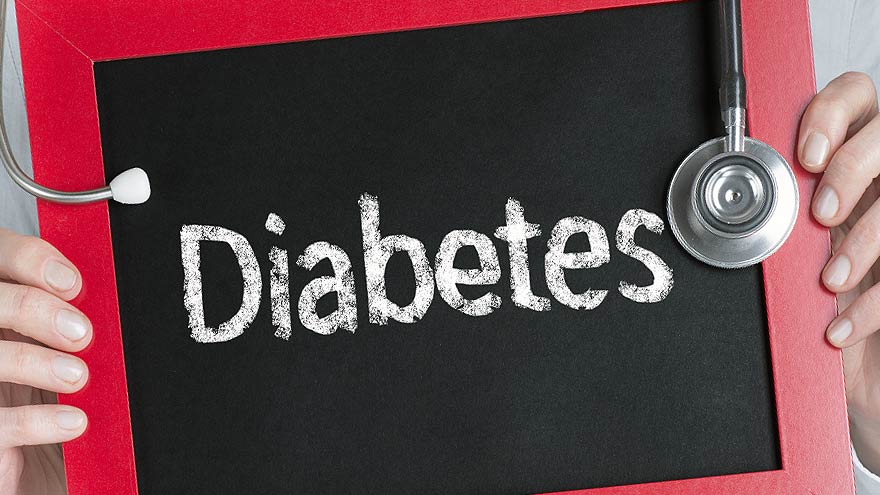Search
-
Slow Cooker Paleo Chili
Nothing says comfort like a bowl of chili. This rich, flavorful dish is Paleo-diet friendly and ready to eat when you are.
-
5 Tips to Keep Your Brain Nimble
Not all memory loss is inevitable — there are several things you can do to keep your brain nimble at any age. Find out how brain exercises, a healthy diet and daily movement can improve your brain’s focus. A modest decline in memory is to be expected as we get older. We forget someone’s name but recall it later. We find the need to make lists to remember things more pressing. Manageable? Yes. But frustrating nonetheless. The good news is we don’t have to sit back and succumb to age-related memory loss. There are concrete things we can do at any age to keep our brains sharp, nimble and engaged. Five Simple Brain Exercises 1. Volunteer or participate in meaningful activities outside of work. This engages your brain and emotions in a healthy, positive way. 2. Engage in moderate, regular exercise to tone body and mind. Overall good health is critical to brain health. Even casual daily walking can boost your mental abilities. 3. Eat the rainbow. Choose to include plenty of colorful fruits and veggies and ease up on processed foods in your daily diet. The proper nutrients can improve circulation to your brain, which will amp up your cognitive abilities. Consult your doctor for the best diet and supplement choices for your specific health needs 4. Get a blood test to determine your body’s hormonal and nutrient levels. Specific hormones and nutrients can affect cognition. Be mindful of your cholesterol levels, and if you take cholesterol medications, such as statin drugs, be aware they can also affect your mental faculties. 5. Engage in brain activities like reading, crossword puzzles, Sudoku and Trivial Pursuit. These types of activities can improve your brain’s focus and concentration and — most important — test your memory and general knowledge. You derive more benefit by engaging in these activities consistently for short amounts of time, so make a weekly appointment with yourself to build brainpower.
-
Get Spicy! Try This Easy Heart-Healthy Vegan Paella
Dive into a vibrant and exciting culinary adventure with our zesty veggie paella! This dish is bursting with bold flavors and packed with goodness, all while being meat-free and salt-free. It's your ticket to a healthier heart, helping to lower cholesterol and blood pressure without skimping on the deliciousness. Get ready to spice up your mealtime in the most delightful way!
Read More About Get Spicy! Try This Easy Heart-Healthy Vegan Paella
-
Meatless Monday: Black Bean Tostadas
Research shows that plant-based diets can help manage — and in some cases aid — in the prevention of many chronic conditions such as diabetes, heart disease and even cancer. If you’re looking to adopt a healthier lifestyle, try incorporating more plant-based and meatless recipes into your diet — even if it’s just once a week. If you want to cut back on meat but not flavor, we’ve got you covered with this black bean tostada recipe. The list of ingredients includes a number of veggies and spices that are not only good for you, but will make your taste buds sing. The best part? This delicious, Mexican-style dish is so easy that even the most novice cook can have dinner served in just 15 minutes. Enjoy!
-
Carl and Janis Team Approach to Renowns Healthy Heart Program
Meet a couple that's all heart. After each had a heart attack one year apart, they committed to Renown's new Healthy Heart Program and support each other along the road to heart health. Almost a year to the day that Janis VanHorn had a heart attack, her partner, Carl Edson, had one too. "That kind of doubled the dose of making sure that we were doing everything that we could to continue with our life," VanHorn says. "It's a very life-altering thing.” And after Edson's quadruple bypass open heart surgery, he was grateful for the simple act of getting into the car with the woman he loves. "I was so relieved," he says. "I didn't realize how precious life was until that moment." The couple see the same cardiologist, Richard Seher, M.D., FACC, FSCAI, who recommended they participate in Renown's new Healthy Heart Program, a 12-week, 36-visit intensive cardiac rehabilitation curriculum that includes monitored exercising and cooking classes. Now they're both familiar faces at the program, which is located at the Renown South Meadows Medical Center. After several weeks, Edson says he has lost 10 pounds and VanHorton has lost inches and feels more toned. Tackling the program together has brought the couple closer and given them the opportunity to fuel one another's health goals and longevity. "I would be lost without this man," VanHorn says," and anything I can do to help him live longer, I'm going to do that." Edson adds, "She is to me my whole life, and I mean that sincerely. There's no one else I can turn to that has helped me in my life as she has, and I'm just trying to return the favor in a big-time way. She is my everything."
Read More About Carl and Janis Team Approach to Renowns Healthy Heart Program
-
Caring for the Whole Family: Renown Nurse Helps Patient with Ailing Pet
Registered Nurse Tori Tembey (left) shared how her co-worker and fellow RN Jennifer Payne helped a patient with his pet's end-of-life arrangements. "It was such a selfless act that Jennifer took the time to do this for the patient.” Tembey says. Pets become members of our own family, and when they are ill or at the end of their lives, it can be devastating for their owners. During a hospital stay, a Renown patient was faced with the difficult decision to euthanize their terminally ill pet. A Renown registered nurse stepped in to help in some pretty remarkable ways. Back in high school, Jennifer Payne wanted to be a veterinarian. She worked in a veterinary hospital and planned to attend veterinary school, but struggled with some of the situations she faced. “I have a lot of compassion for animals,” Payne explains. “And some of the things I saw while working at the vet — like people bringing in their cat saying, ‘I’m moving, you need to put this cat down’ — wasn’t OK with me, and wasn’t what I wanted to do.” She changed course and went into nursing, but recently drew upon her early experiences working with pets and their owners to help a Renown patient in an extraordinary way. Payne now works in the trauma intensive care unit at Renown Regional Medical Center, where she recently observed a county animal control officer visiting a patient. The patient was visibly upset — they learned their dog was terminally ill and in poor health, and a veterinarian was recommending euthanasia. The patient had lost another dog just before Christmas. The patient hoped to have his ill dog similarly cremated, but animal control does not perform cremation. “I overheard all of this and thought, ‘this is the most horrible thing I’ve ever heard,’” Payne says. She offered to pick up the dog, have him cremated and bring the ashes to the patient. She also took up a collection with her Renown colleagues to pay for the cremation. The next day — her day off — Payne and her young daughter picked up the ashes and brought them to the patient at the hospital. “He couldn’t even talk because he was crying so much,” Payne says. “He said ‘I can’t thank you enough for all you’ve done. You’re a wonderful person.’ There was a friend in the room who asked what my daughter’s name was, and I said ‘Estelle.’ The friend said, ‘Estelle, your mother is an angel.’” Payne, who has a golden retriever of her own, says she knows what it’s like to have “fur babies,” and she could see how important this dog was to the patient. “It was great to be able to do this for him,” she says. Renown salutes nurses like Jennifer Payne, who are making a genuine difference everyday in the lives of patients and in the community.
Read More About Caring for the Whole Family: Renown Nurse Helps Patient with Ailing Pet
-
Low Salt, Big Flavor! Spicy Oven-Fried Chicken
Looking for a low-sodium recipe that delivers high marks for taste? Try this Heart Association-approved recipe for oven fried chicken. Diets high in sodium can increase blood pressure, putting you at greater risk for stroke. But you don’t have to trade taste for better health. Take this recipe from the American Heart and Stroke Association: With spicy cayenne, tangy dry mustard and smoky paprika, you won’t miss the salt in this lightened-up southern classic.
Read More About Low Salt, Big Flavor! Spicy Oven-Fried Chicken
-
Name-Brand Medication vs. Generic: What's the Difference?
Most prescriptions meds are available in generic form. Find out the similarities and differences between the two and how to determine whether a generic is right for you. Approximately 80 percent of prescriptions sold today are generics. If you’re taking a prescription medication, chances are it’s a generic form of the brand-name drug. But are you getting the same quality in a generic medication? Do generics measure up? The answer in most cases is yes — generics, just like branded products, are regulated by the Food and Drug Administration. “To have a generic product approved by the FDA, the generic manufacturer must prove that its product is bioequivalent to the branded product,” explains Adam Porath, PharmD, BCPS AQ-Cardiology, BCACP and Vice President of Pharmacy Services. Basically, it has to function the same. “Generic products are extremely well tolerated and will provide the same results as using a branded product,” Porath says. Here’s how generics are the same as name-brand prescriptions: Generic products contain the same active ingredients. They produce the same desired clinical effect and accompanying side effects. Generics come in the same form as their branded counterparts: pill, liquid or inhaler, for example. Release into the bloodstream matches the name brand in timing and strength. Here’s how they differ: Generics generally cost less. Federal law requires generics have different names and look different: shape, size, markings and color. Generics contain different inactive ingredients, like binders, fillers and artificial colors. Different side effects with generics can usually be attributed to these additions. Why do generics cost less? When pharmaceutical companies develop a new drug, they are paying for research, development, clinical studies, marketing — in some cases it can cost more than $800 million and take 10 to 15 years to develop a new drug. “The manufacturers of branded medication products have to recoup their research and development costs,” Porath says. So companies are granted a limited patent to sell their drug without the competition of generic counterparts. “When patent exclusivity ends, the market is open for any generic manufacturer to make a competing product with FDA approval.” Without the same startup costs, companies can sell generics at 80 to 85 percent less. And because more than one company can produce the same generics, competition drives prices even lower.
Read More About Name-Brand Medication vs. Generic: What's the Difference?
-
One Patients Story of Survival
Thanks in part to the care provided by Renown’s award-winning team of ICU nurses, Tony Mowatt is alive, thriving and engaged. Read his story — and learn about the exclusive Beacon Award of Excellence — below. The open road. The growl of the engine. The feeling of freedom. That’s what Oakland resident Tony Mowatt was enjoying as he drove up Highway 88 toward Reno for the semi-annual Street Vibrations event. But he wasn’t expecting to hit the diesel truck — or to fly off of his bike over 100 yards, skidding onto the side of the road. He was severely injured and in the midst of rural Nevada. He had crashed just outside Centerville, Nev., and was miles away from any critical care hospital. Having the only trauma center equipped to treat his serious injuries, Tony was flown to Renown Regional Medical Center and admitted to the intensive care unit (ICU). ICU Nurses Treat Patient, Support Family Tony’s girlfriend, Tasha Klubock, was notified by his friend that he had been taken to the hospital. She immediately drove from Oakland to Reno to see Tony at Renown. Her first night there was overwhelming and scary — nobody knew if Tony was going to survive. But the nurses helped Tasha cope with the initial shock. Caring for the patient isn’t their only job — they also care for the family. “They [the nurses] just kept coming in and checking on me,” she said. “Angela was so amazing that first night. I really just bonded to her, and I remember when the shift switched, I panicked thinking about who was coming on and wanting to meet the next nurse … But they all came to talk to me — I had updates from everybody. It was just amazing.” ICU Nurses Became Family Tony spent 32 days in Renown’s Sierra ICU, surviving a serious head injury, all with Tasha by his side. He and Tasha still stay in touch with Renown nurses. “Even though this was literally one of the most hideous, craziest things to go through,” Tasha said. “There was so much hope and they became such a family to me and I still think of that time fondly because of the nurses.” “I’m alive because they wanted me to be,” Tony said. And Tony and Tasha are now happily engaged and planning their wedding. Exceptional Care: Renown ICU Nurses Win Awards Renown’s ICU nurses provide care like this every day to countless patients — it’s so second nature to them that they forget how exceptional it truly is. But it’s certainly care like Tony’s that has earned them national recognition. The American Association of Critical Care Nurses awarded the Beacon Award of Excellence to the Sierra, Cardiac and Roseview ICUs. These are the only ICUs in Nevada to obtain this honor. The Beacon Award recognizes critical care nursing teams who exemplify excellence in areas like leadership, process systems, quality care, knowledge, learning and development, excellence in patient care and superior patient health outcomes. “I couldn’t have been more proud of what we’ve done to accomplish this,” said Nick Dovedot, Cardiac ICU nurse. “It represents who we are. Just a great group of individuals who all work together as a team to make our patients get better.”
-
The Healthy Nevada Project Changed My Life: A Local Mom's Story
Read about Jordan Stiteler, a local mom who says the Healthy Nevada Project provided insights into her family’s genetic makeup — and the likely cause of her dad and great grandfather’s deaths. Now she is changing her life due to her new diagnosis of familial hypercholesterolemia, which will allow her to take steps toward preventing the same fate. Jordan Stiteler’s dad died suddenly of a stroke nearly ten years ago — at only 45 years old. His grandfather died at age 40. Now through the Healthy Nevada Project’s no-cost genetic testing, she is closer to understanding why that may have happened. And she can take proactive steps to prevent the unhealthy symptoms that often lead to a stroke and heart problems. After getting her Geno 2.0 by National Geographic ancestry report, Stiteler got a call from Renown Institute for Heart & Vascular Health Cardiologist and Renown IHI Director of Research, Dr. Christopher Rowan. “They told me that I have FH, which is familial hypercholesterolemia,” she said. “I have genetically very high cholesterol because I have a non-functioning gene that doesn’t get rid of my cholesterol like a normal body would.” Familial Hypercholesterolemia: Simple Life Changes Dr. Rowan told Stiteler it is curable with medication and a change in lifestyle. Stiteler has embraced healthy lifestyle changes by exercising more and eating healthier. “It is so important. Being a mom, I think you have so much more to live for. Having this information has changed my life.” Stiteler feels confident FH affected her Dad. “It is helping my family realize that we need to get tested,” she said. “There were big milestones that my Dad missed. He didn’t get to see either of us get married or have our children. That was huge.” She has become passionate about sharing the need to join the Healthy Nevada Project as her way of helping to prevent other families from possibly going through what she and her family did with the early loss of her Dad. In addition to FH results, the Healthy Nevada Project is returning clinical results on BRCA 1/2 (hereditary breast and ovarian cancer) and Lynch syndrome (colorectal and endometrial cancer) to consenting study participants. To sign up for the Healthy Nevada Project, go to HealthyNV.org. Join the Healthy Nevada Project Recruitment for phase two is still open. In addition to opting in to receive clinical results, participants receive National Geographic’s Geno 2.0 ancestry app at no cost. They also have the chance to pick an additional app for health and wellness after completing a follow-up survey. Learn More or Sign Up
Read More About The Healthy Nevada Project Changed My Life: A Local Mom's Story
-
Do You Have Prediabetes? Three Things to Know
Most people don’t even realize their blood sugar is higher than normal on a daily basis. This condition means they are on the borderline of having Type 2 diabetes. Learn more about what it means to have prediabetes. Also learn risk factors for Type 2 diabetes and how it can be prevented. ‘Prediabetic’ is a term you may have heard before, but few understand what it means. Fewer still understand how to prevent the subsequent diagnosis of “diabetic.” Here are three things you need to know. 3 Facts About Prediabetes One out of three U.S. adults has prediabetes, yet don’t know it. Prediabetes means your blood sugar (glucose) level is higher than normal but not high enough to be diagnosed with diabetes. When you have prediabetes, your body still produces insulin, but the insulin is not as efficient at removing the sugar in your blood. So your overall blood sugar remains high — causing insulin resistance. People with prediabetes are at high risk for Type 2 diabetes, heart disease and stroke. If you become diabetic, there are further complications to your kidneys, feet, eyes and skin. Risk for diabetes increases with age. According to the Centers for Disease Control and Prevention (CDC), among adults ages 18-44, only 4 percent have diabetes. For ages 45-64, 17 percent have diabetes, and among those ages 65 years and older, 25 percent have diabetes. If prediabetes goes untreated, it often leads to Type 2 diabetes within five years. Current estimates indicate 1 in 3 Americans has prediabetes. Being overweight is risk factor for diabetes. Other risk factors include having high blood pressure, having high cholesterol, being inactive and giving birth to a baby weighing more than 9 pounds. You can prevent Type 2 diabetes with healthy changes to your daily nutrition and activity levels. Have Prediabetes? Here’s Help To reduce the impact of prediabetes and Type 2 diabetes, the CDC established the National Diabetes Prevention Program (National DPP), which provides the framework for Type 2 diabetes prevention efforts in the U.S. “The Diabetes Prevention Program is a program for people with prediabetes and is based upon a large study done by the CDC that showed that lifestyle changes are more effective in preventing the development of prediabetes to diabetes than medication alone,” says Stephen Compston, RD, LD, CDE, Renown Health Outpatient Dietary Educator. “This is a program where participants will learn lifestyle changes to improve their health and decrease their risk of developing diabetes in the future. The goal is for participants to lose 5-7 percent of their weight in the first six months, which was shown to decrease the risk of developing diabetes by 58 percent in the future.” Renown Health is offering this CDC-approved, 12-month program. Our lifestyle coaches will help you develop healthy eating habits, increase your physical activity and keep you motivated to make healthy lifestyle changes. Participating in the program will help you: Learn the skills needed to lose weight, be more active and manage stress Connect with a lifestyle coach for guidance and encouragement Gain support from other members sharing your goals
Read More About Do You Have Prediabetes? Three Things to Know
-
Do You Resolve to Lose Weight and Live Healthier? Here's How.
Weight loss and healthier living tend to top most people’s lists of New Year’s Resolutions. So if you’re like the vast majority, here’s help — a comprehensive look at all of Renown Health’s programs that will help you lose weight and tackle metabolic challenges. Quick quiz: How many of the following apply to you? You have a need to lose weight, but you haven’t been guided on how to make sustainable change; You’re experienced a recent rapid weight gain, but lab tests didn’t reflect a change in your health; You’ve experienced a life-changing event that caused weight gain; You have problems with where you are carrying your weight, such as your mid-section; You’ve tried other weight loss programs, but they didn’t work. If you found yourself nodding in agreement to any one of the above statements, Renown’s programs can help. They cover the spectrum of helping with weight or metabolism challenges. But the million dollar question is: Where do you start? How to Lose Weight and Live Healthier Ideally, it’s best to start by talking with your primary care provider. Your provider knows your medical history and concerns related to your health. Talk to your provider about your past history with weight loss and gain. Your primary care provider will assist with the referral process and provide you with options you might not considered on your own. Most importantly, by starting with your primary care provider, you can take full advantage of all your health benefits. Renown offers four weight loss/management programs: Medical Nutrition Therapy Meet one-on-one with a Registered Dietitian at Renown’s Health Improvement Program to discuss your health goals. You may qualify for this program if you have: Heart or kidney disease Gastrointestinal issues Weight gain or weight loss Food allergies or sensitivities High blood pressure or high cholesterol A thyroid condition Diabetes – classes available, including: Type 2 Diabetes, insulin and gestational diabetes management during pregnancy (Offered in English & also in Spanish). For more information, call 775-982-5073. Medical Weight Management This program includes a one-on-one appointment with a board-certified bariatric doctor. You will receive a comprehensive evaluation and customized treatment plan to meet your needs and medically manage your overweight or metabolic challenges. Treatment options in this program may include nutrition changes, meal replacements, medication, exercises and also behavioral therapy. Here are a few qualifications for the program: A BMI of 25 or higher and health risk such as Type 2 diabetes, obstructive sleep apnea, cardiovascular disease, stroke, gout, osteoarthritis, infertility or polycystic ovarian syndrome A BMI of 30 and higher A metabolic problem such as diabetes, fatty liver and is not responding to regular medical care. Those with a metabolic problem may be considered normal weight, however may need to lose fat mass or reduce their waist size to get healthier. An increased risk of heart disease, stroke or Type 2 diabetes, regardless of weight that is not responding to regular medical care. For more information, call 775-982-5073. Bariatric Weight Loss Surgery We understand that the desire to have bariatric surgery is a choice you are making for your long-term health. Our team provides education on the necessary steps before, during and after surgery to ensure you are successful in controlling your obesity. You may qualify for this program if you have: A BMI of 40 or more, or: A BMI of 35 to 39.9 with significant health problems such as hypertension, high cholesterol, sleep apnea, diabetes or diagnosed arthritis To learn more, visit our Bariatric Surgery. You may also attend one of our monthly Weight Loss Surgery Seminars to learn if you are a candidate. Dietary Consultation at Renown Medical Group Many people aren’t aware that you can schedule short, frequent visits with a registered dietitian at Renown Medical Group locations in Reno or Sparks. Telehealth is also available at the Renown Medical Group – Fernley. Qualifications include: A BMI of 30 or greater You have a primary care provider with Renown Medical Group Medicare or Senior Care Plus member Since this program is only offered through Renown Medical Group, you must be an established patient. To establish with a primary care provider, call 775-982-5000. Talk to your primary care provider to see if you qualify for one of Renown’s weight management programs. Going through the referral process is the best way to ensure you are taking full advantage of your health benefits.
Read More About Do You Resolve to Lose Weight and Live Healthier? Here's How.











